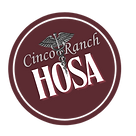
CERT Skills
Is this event right for you?
You might enjoy this event if you:
-
Have an interest in disaster response and community safety.
-
Enjoy learning practical skills like first aid, search and rescue, and emergency operations.
-
Want to explore careers in emergency management, public safety, or disaster medicine.
-
Prefer a combination of a written knowledge test and real-world skills assessment.
-
Value preparedness, safety, and the ability to provide critical care in challenging situations.
Event Details
Detail
Info
Emergency Preparedness Event
Team of 2 competitors
Written test – 50 multiple-choice questions, 60 minutes
Skills demonstration (SALT triage, life-threatening interventions, head-to-toe assessment, lifts and carries, splinting closed fractures)
Round 1: 60 minutes
Round 2: 4–8 minutes per skill
Highest Round 1 test score
Disaster preparedness, CERT organization, life-threatening interventions, medical operations, triage, disaster psychology, fire safety, light search & rescue, terrorism
TYPE
FORMAT
ROUND 1
TIME LIMIT
TIE BREAKER
ROUND 2
FOCUS AREAS
Topics on the Test
1. Disaster Preparedness– 15%
2. CERT Organization– 5%
3. Life-Threatening Interventions & SALT Triage– 30%
4. Medical Operations– 20%
5. Disaster Psychology– 10%
6. Fire Safety– 5%
7. Light Search & Rescue Operations– 15%
8. Terrorism– 5%
Study Materials & Practice
Key Official References:
-
CERT Online Training Course IS-317: FEMA Training Portal
-
CERT Training Materials: Community Emergency Response Team Training Participant Manual (Sept 2024 edition)
-
First Aid for Severe Trauma (FAST) – American Red Cross
-
SALT Mass Casualty Triage Online Training Program – National Disaster Life Support Foundation
Event Day Checklist:
-
Photo ID for both rounds
-
Two #2 pencils (non-mechanical) with erasers
-
Disaster Kit including:
-
PPE (gloves, eyewear, masks, helmet & gloves [may verbalize], sturdy shoes [may verbalize])
-
Bandaging materials (sterile gauze, roller bandages, trauma dressing, non-stick dressings)
-
Tourniquet (HOSA provides or competitor’s own)
-
Bandage scissors or medical shears
-
Patient tags (note cards), triage tape, pen/marker
-
Alcohol-based hand rub
-
Clipboard or notebook (optional)
-
Professional business attire or official HOSA uniform (Round 1)
-
Attire appropriate for disaster response (Round 2)
-
Know the General Rules & Regulations
Tips from Previous Competitors
-
""
-
""
-
""